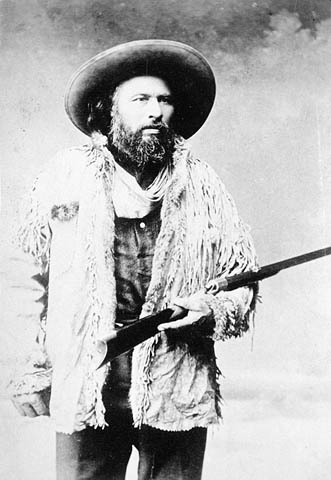North West Rebellion was a conflict that arose in 1885 between the Métis and the Canadian government in what is now the province of Saskatchewan. Métis are people with both First Nations and European ancestry. The conflict resulted from Métis fears that government plans to encourage new farming settlements in the northwest would threaten their communities.
The Métis had opposed the government in the Red River Rebellion in 1869 and 1870, in what is now the province of Manitoba. That conflict also had involved Métis fears about the effects of white settlement on the lands they farmed. The Métis demanded, and obtained, guarantees that the Canadian government would protect their cultural, language, property, and religious rights. The guarantees, however, proved too weak. As a result, the Métis retreated west and established new communities in the valleys of the North Saskatchewan and South Saskatchewan rivers. There, the Métis laid out their small farms in the traditional French river-lot pattern, in long strips bordering the rivers.
By the early 1880’s, the Métis had become concerned about the effects of the nearly completed transcontinental railroad and government plans for white settlement in Saskatchewan. The government wanted the land divided into square lots and refused to approve Métis claims for new lots laid out in riverfront strips.
The Métis again called upon Louis Riel, their leader in the Red River Rebellion. In March 1885, Riel set up a temporary Métis government to negotiate with the Canadian government. The Canadian government regarded this as an act of treason. All possibility of negotiation ended when the Métis and the North-West Mounted Police fought near Duck Lake on March 26, 1885. People on both sides of the conflict were killed. Scattered fighting also broke out between some Cree people and settlers.
Canada’s government sent a military force to Saskatchewan. These troops, joined by the North-West Mounted Police and local volunteers, moved against the Métis at Batoche. The Métis, seriously outnumbered and poorly equipped, were defeated at Batoche in May 1885. Gabriel Dumont, their military leader, escaped to the United States. Riel was arrested, tried for treason, and hanged in Regina in November 1885.

After the rebellion, people in the northwest gained representation in the Canadian Parliament. Many French-speaking Canadians sympathized with the Métis, and the rebellion led to increased tension between French- and English-speaking Canadians. The rebellion accomplished little for the Métis.
